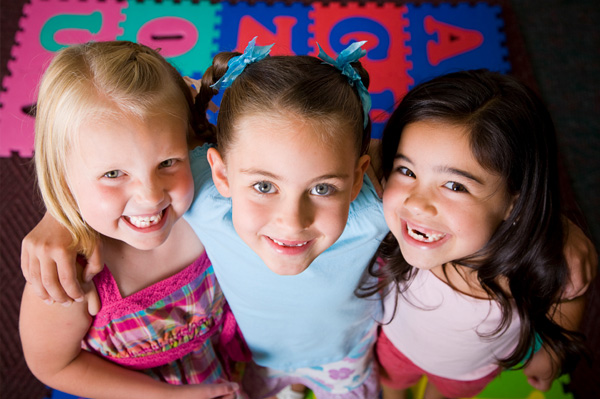When you choose Rising Stride, you aren’t just providing your preschooler with a stellar education and the opportunity to learn from highly-skilled professional teachers. You are giving your child one of the greatest gifts there is: the time and space to forge new social relationships. These relationships may develop into lifelong friendships or might only span a few years. Either way, preschool friendships are vital for children because they nurture social-emotional learning skills and growth. Here are five ways preschool friendships help your child:
For many children, pre-K is more than just the first step in their educational journey—it’s also where some of their earliest friendships begin. With an enriched curriculum and a focus on experiential learning, high-quality pre-K programs are designed to support children in all areas of development, including the crucial skills needed for building relationships and navigating social situations.
Friendship skills children are learning
| Skill | Example |
|---|---|
| Patience | When children wait for their turn, take turns and share with others. |
| Communication | Talk and listen to others. |
| Empathy | Respond to others’ feelings with understanding and take the perspective of others. |
| Consideration | Say please and thank you, and are helpful to those around them. |
| Play Skills | Make suggestions for play roles and ideas. |
| Social Skills | Learn cooperation, communication, empathy, responsibility, and emotional control. |
One of the key benefits of a pre-K program is its emphasis on social-emotional learning and character building. These programs create an environment where children can practice essential life skills like sharing, collaborating, and resolving conflicts. Through group activities, children are encouraged to work together toward common goals. Whether they’re building a block tower, completing a puzzle, or creating art, these experiences lay the groundwork for teamwork and cooperation.
Free play within the classroom is another cornerstone of a high-quality pre-K experience. It offers children opportunities to interact with their peers in a less structured setting. During free play, they learn to share toys and materials, take turns, and negotiate conflicts—important lessons that serve them well beyond their early years. When challenges arise, skilled teachers are there to guide them, offering gentle corrections and teaching problem-solving techniques when children can’t work things out on their own.
These moments may seem small, but they’re monumental in a child’s development. Learning to compromise over which game to play, offering comfort to a friend who’s upset, or celebrating a shared achievement—these experiences help children form bonds that can last a lifetime.
Research consistently shows that children who participate in pre-K programs with enriched curricula and experiential learning opportunities are better prepared for school, both academically and socially. But beyond the classroom, the benefits extend into their personal lives, fostering resilience, empathy, and a sense of community.
Pre-K is a place where young minds grow and young hearts connect. It’s where children learn not just how to count or recite the alphabet, but how to be a friend, a teammate, and a kind and caring individual. These lessons are every bit as important as academic readiness, helping to shape the kind of person they’ll become.
As parents, educators, and caregivers, we should celebrate and support these early opportunities for connection. After all, a lifetime of friendships can start with something as simple as sharing a crayon, taking turns on the slide, or working together to solve a problem. And for the children who experience it, pre-K becomes a joyful and formative chapter in their journey—one filled with laughter, learning, and friendships that last far beyond the classroom walls.

